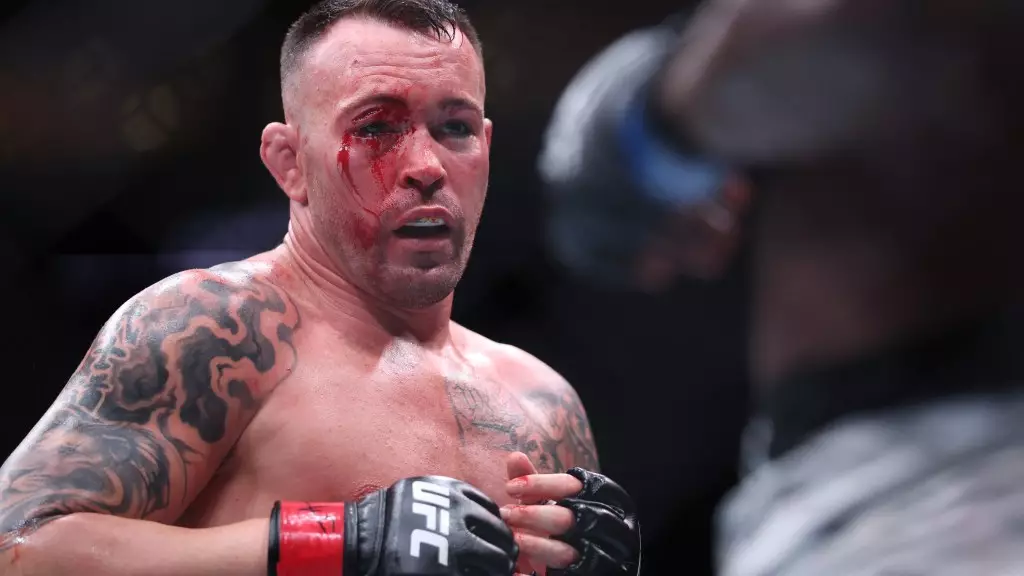Colby Covington recently faced Joaquin Buckley at UFC on ESPN 63, a bout that ended in heartbreak for the fighter and his supporters. The match, held at Tampa’s Amalie Arena, concluded with a controversial doctor stoppage TKO in the third round due to a severe cut on Covington’s right eyelid. In the immediate aftermath, Covington expressed his belief that had different circumstances prevailed, he would have emerged victorious. His conviction hints at both a profound disappointment and the fighter’s mindset that thrives on competitive spirit—an attitude that not only seeks to understand the nuances of defeat but also to spotlight perceived injustices.
In a statement on his YouTube channel, Covington emphasized that, notoriously, he thrives in the championship rounds. His assertion reflects a fighter’s philosophy where endurance and poise often dictate the course of the match. Covington argued that Buckley, despite his overall victory, was visibly slowing down as the fight progressed. The assertion raises interesting points about strategy in combat sports; many fighters find their rhythm later in the match, and Covington’s expressed confidence in overpowering Buckley underscores the unpredictable nature of combat sports. The latter rounds can bring surprises, often swinging the fight in favor of those with superior conditioning, and Covington is eager to capitalize on that.
Discussing the circumstances of his injury, Covington pointed out that it was not a direct strike but rather an accidental headbutt that led to the stoppage. Herein lies a critical aspect of mixed martial arts—how injuries can abruptly alter the narrative of a fight. In critical moments, an inconsequential event can unexpectedly shift the momentum, raising questions about fairness and the role of officiating. The doctor’s intervention may be perceived as a safety necessity, but for fighters like Covington, it can also feel like a premature termination of their combat story. Reflecting on the stoppage, he conveyed a sense of unfinished business, stating that much lay ahead in the contest that needed resolution.
With two consecutive losses now on his record for the first time in his career, Covington finds himself at a pivotal juncture. Combat sports often hinge on resilience, and how Covington navigates this rough patch is critical not just for his career, but also for his psyche. He has expressed interest in stepping into the octagon against Gilbert Burns, a match that could potentially reinvigorate his standing within the UFC. This proposed matchup represents more than just a fight; it’s an opportunity for redemption, a canvas for Covington to paint a new narrative amidst disappointment and uncertainty.
In essence, Covington’s situation serves as a reminder of the nuances of competition—where one small incident can rewrite the expectations and outcomes of rigorous training and preparation. As he prepares for the next challenge, fans and critics alike will be watching to see if Covington can reclaim his thunder in the octagon.

